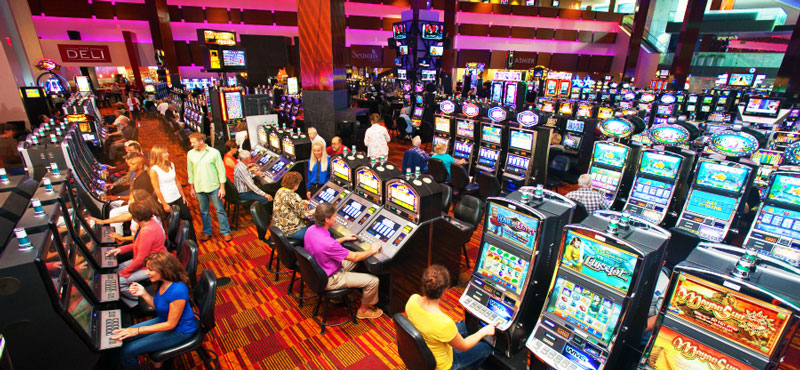
Casino gaming has long been a subject of interest and controversy, attracting millions of players around the world. With a blend of luck, skill, and the thrill of risk, casino games offer an exciting escape from everyday life. However, as entertainment becomes ever more accessible, it invites a deeper examination of the ethical implications surrounding these games.
At the heart of the debate lies the question of whether casinos promote safe gambling or take advantage of vulnerable individuals. 78WIN The allure of potential winnings versus the reality of losses can create a challenging dynamic, and understanding this balance is crucial for both players and operators. As we delve into the ethics of casino gaming, we will explore the duties of casinos, the effects on society, and the steps that can be taken to foster a better gaming environment.
The Impact of Casino Gaming on Society
Casino gaming has a significant influence on society, affecting not only the economy but also interpersonal dynamics and local frameworks. The revenue generated from casinos can lead to job creation and boost local economies, as they provide numerous employment opportunities in different sectors including food and beverage, leisure activities, and shopping. However, while the financial benefits can be substantial, communities often struggle with the potential negative impacts that arise from higher gambling activity.
Moreover, the presence of casinos can lead to an increase in gambling addiction, presenting significant challenges for individuals and families. The thrill of casino games can quickly transform into a compulsive habit, affecting connections with others and leading to monetary issues. Many individuals may find it difficult with the loss of control over their gambling behaviors, resulting in a need for community support services and help to address this growing issue. The social cost of addiction can ripple through families and neighborhoods, creating an urgent need for sensible gambling approaches.
In addition to the economic and social ramifications, casino gaming often showcases cultural attitudes towards uncertainty and entertainment. It can foster a sense of excitement and leisure, attracting tourists and boosting local travel. However, this allure may also mask the wider implications of gambling as a method of entertainment, provoking ethical questions about its promotion and availability. As communities weigh the advantages and drawbacks of casino gaming, the need for responsible practices and regulation becomes increasingly critical in ensuring that the positive aspects are enhanced while reducing the negative effects.
Ethical Concerns in Betting Practices
The morality of gambling gaming often center around the potential for addiction and its effects on individuals and families. Betting can lead to significant monetary distress, impacting not only the gamblers but also their loved ones. As people become entrapped in the appeal of winning, many lose track of their financial limits, which can result in devastating results such as insolvency. This poses moral questions about the duty of gambling establishments in fostering safe gambling habits and offering support for those who may be dealing with gambling addiction.
Another critical concern is the promotion of gambling to vulnerable populations. Casinos often aim at low-income individuals or neighborhoods with the promise of fast gains, which can continue cycles of poverty and hopelessness. In this context, the morality of advertising strategies used by gambling establishments come under examination, as they may take advantage of the need of people seeking an way out from financial hardships. This manipulation raises ethical questions about the integrity of the betting industry and its responsibility to protect its most at-risk customers.
Additionally, the impact of casino operations on the community as a entirety cannot be overlooked. While some argue that casinos create jobs and stimulate local economies, others point to the social costs associated with dysfunctional gambling, increased crime rates, and a burden on public services. Balancing economic benefits with the risk for community issues presents a challenging ethical dilemma for lawmakers and casino operators alike. The challenge lies in discovering a ethical approach that prioritizes the well-being of people and society while still allowing for the enjoyment of gambling gaming.
Regulatory Structure and Duties
The oversight framework surrounding casino activities is created to ensure equity, honesty, and gambler security. Various government agencies and casino commissions create and implement regulations that dictate how casino activities operate, the standards for game design, and the protocols for processing winnings. These regulations differ by locale but typically involve permit requirements for operators and strict measures to avoid fraud and scams.
In also to regulatory bodies, casino operators bear major duty in maintaining moral standards within their facilities. They must enforce responsible gaming practices that promote player safety and education, including offering self-ban options and offering information about the hazards related to gaming. Casinos are also accountable for training employees to spot signs of problem gambling and be aware of the correct actions to assist customers in trouble. https://78win01.cfd/
Moreover, clarity in casino operations is vital for building and keeping public faith. Casinos should present clear data about the chances of activities, marketing deals, and any connected dangers. By fostering an environment of transparency and trust, gambling establishments can help mitigate the potential harmful impact of betting while boosting the general gaming experience for all players.
